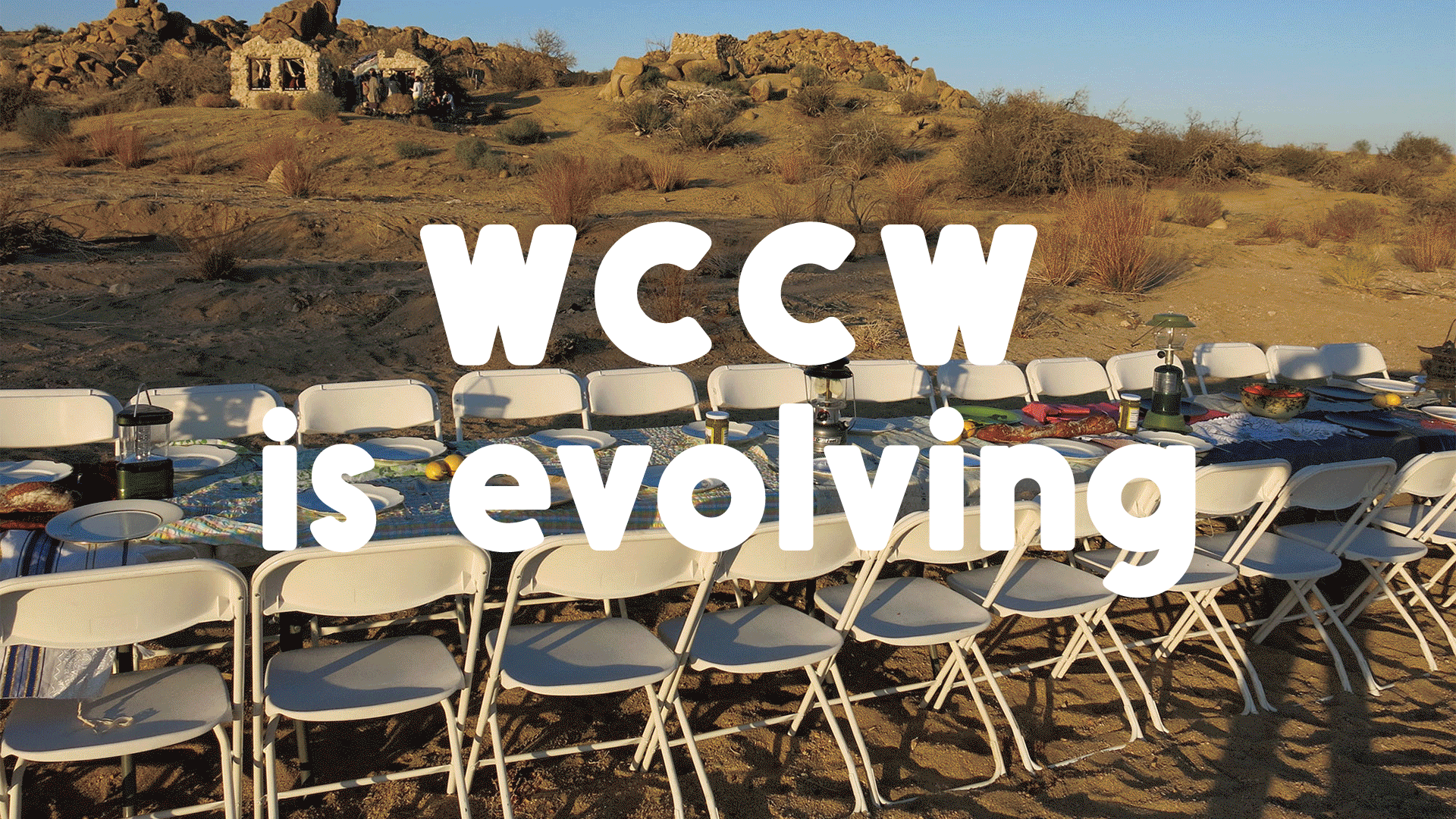
What’s Up, We’re The Feminist Center for Creative Work
We’re more ourselves than ever.
Now, after six years of incredible evolution and support from our community, we are ready for a new name. From now on, the Women’s Center for Creative Work will be known as the Feminist Center for Creative Work.
This shift may seem abrupt, but we’ve been considering a name change for a while now. Our new name strongly emphasizes the ideological and political mission of the work we’ve been doing as an organization to cultivate feminist creative practices. We’re also moving away from our previous, gendered name to better reflect who we are now. This change is an acknowledgment and reminder that we plan to continue to work toward centering trans and nonbinary people in our community. It’s important for us to set clear intentions with our name, about who this organization is for and what it’s about: people creating and participating in feminist work. Not all women are feminists and not all feminists are women.
Whether in digital or physical space, we are still committed to our core values of working towards a feminism prioritizing Black and Indigenous people of color, queer, trans and nonbinary people, and other historically marginalized communities. We expect to be continually defining and redefining “feminist” on our own terms and with our community, through the processes we build, the conversations we engage, and the creative work we highlight. We’ll be working against the commodified and white-associated representations of feminism, and grappling with its multiple interpretations. But we still believe intersectional feminism is a very powerful foundation for reimagining the future.
Our new name fills us with energy, and we feel an urgency to begin using it immediately! So as we move into this shift, we hope you’ll lend us your grace in allowing both WCCW and FCCW to exist at once in certain places, keeping in mind that wherever and however you’re encountering us, it’s all the Feminist Center for Creative Work. Please note that we have changed our Instagram handle and you’ll now find us @feministcenterforcreativework.
Looking ahead to other changes you can expect, you’ll be introduced to our new membership levels in May, which will give you even more connection to your favorite parts of FCCW, and over the next few months, we’ll be embarking on a rebrand to give us a new look.
Thanks for taking this journey with us, we couldn’t do it without you!
Frequently Asked Questions
More info on our name change and what it means
Where did the new name come from?
It was a collective decision to change the name, and one that felt really easy to make. Nearly everyone on staff and the board had encountered at least one moment where “Women’s Center for Creative Work” felt uncomfortable, misaligned or misrepresentative of our community and work — we wanted better.
A committee was formed to discuss whether to change our name, and what our new name would be. Through a consensus process, we arrived at an agreement to change our name. From there we discussed options for the new name, including several other words that we could use to define ourselves, and settled on “feminist” as the best way to describe the framework and structural analysis of power that has informed our values and will continue to lead us into the future.
In the end, we agreed on Feminist Center for Creative Work. We feel it reflects the political intention behind the various types of work that we do and the webbing that holds our community together, but still holds a connection to our past. This is the option we brought to our larger staff and board, and now we’re bringing it to the public.
Where did the previous name come from?
The Women’s Center for Creative Work was founded in 2013 by artist Katie Bachler, graphic designer Kate Johnston and cultural producer Sarah Williams. They decided to bring their community together to talk about contemporary feminism and its trajectory in a convivial setting with A Women’s Dinner in the Desert and then A Women’s Dinner in the City, two events which galvanized their community in powerful ways they hadn’t quite anticipated.
Those first two dinners tapped the makings of an exuberant community of women ready to connect and collaborate, discuss and support each other. The founders were compelled by this burgeoning community to consolidate, host more events, to give it a name, to look towards the future. The Women’s Center for Creative Work was born.
The name itself was a a playful take on the nascent openess of the project as well as a reference to L.A.’s Women’s Building, which opened in 1973 and was known as a home for feminist thought. Since then, the values we model and the mission of our work have become ever sharper, and we want a name that accurately reflects who we are and what we stand for. Read more of our history.
Who is invited in and centered at FCCW?
We prioritize Black and Indigenous people of color, queer people, people with marginalized genders — including trans women, trans men, nonbinary people, and cis women — and other historically marginalized communities. Our communities are varied, and different programs and initiatives will center different groups.
What’s wrong with the word “women”?
As a way to describe a gender, nothing, and this is not a rejection of women from our community! However, when we’re describing our organization, “women” is just not accurate nor inclusive of all the people who we work to prioritize in our community and organization, and doesn’t reflect the values of our work.
What does “feminist” mean?
Our feminism is a framework for working and fighting against the interconnected power hierarchies, structures, and systems that enact violence and inequity on all of us, in different ways. Our intersectional feminism is informed by the many movements that seek radical change and revolution — it is not white, not just for women, and not meant to be easy or comfortable. You can read about how our interpretation informs our core values here. We’re using “feminist” to define the political agenda of our work.
Do you have a question that isn’t on this list?
Send us an email at info@wccw.us and we’ll do our best to answer it and add it to this list.


